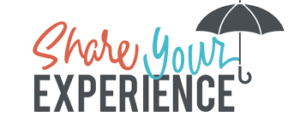Introduction
 Here is another controversial but very up-to-date topic for you, the employees of so many companies. What is at stake? Access to employees’ emails and set up camera surveillance: it was the plan of a director of a certain communications company in the Netherlands, but it could have been anywhere on the planet.
Here is another controversial but very up-to-date topic for you, the employees of so many companies. What is at stake? Access to employees’ emails and set up camera surveillance: it was the plan of a director of a certain communications company in the Netherlands, but it could have been anywhere on the planet.
It led to resistance from employees, and even a lawsuit. The big question is: is a company allowed to do this? And, moreover, does it happen more often than employees are really thinking? Monitoring of employees, unfortunately, occurs more often than we think.
If you want to have nothing of it, then please check your perfect way out at the end of this article.
What happened exactly?
The decision of the director to hang up cameras in the editorial office of the company in question was quite a stir. And it didn’t stop there: he also wanted – ‘for compelling reasons’ – to inspect employee e-mail traffic. The consequence of implementing this measure rather one-sidedly was that the relationships of staff with management have been seriously ruined. But does this situation happen more often?
Yes, according to the survey recently conducted by a software comparison site, among more than 1,200 employees, including 200 executives. Almost 40 percent of the respondents indicate that they are monitored via software.
including 200 executives. Almost 40 percent of the respondents indicate that they are monitored via software.
The managers indicated that they, among other things, keep track of attendance and log-in and log-out times (42 percent), make video recordings of the workplace and/or screenshots (31 percent), and keep track of digital communication (31 percent).
Unsurprisingly, this is not to everyone’s liking: 53 percent indicate that they do not want to be monitored. 38 percent experience stress as a result of the monitoring and 51 percent believe that peeping in on people harms confidence.
Microsoft Office 365 reporting
Have you received a report from Office 365 since you started working from home? There is a good chance that you were monitored by your employer. With Workplace Analytics, detailed productivity scores can be mapped per employee. The monitoring software uses data from e-mails and chats for this, for example.
In addition, increasing communication via chat programs such as Slack increases the possibilities for control. Without much effort, any boss or employer can poke around about the response and intensity of participation in conversations. There is a Compliance Exports option in Slack, which also allows employers to view direct communication between employees.
Analytics tools and fancy names
An employer can also use analytics tools, under fancy names like Datafly or Juicy Insights, to observe content and metadata (who communicates with whom, when and for how long?) Of mail and chat. Sometimes telephone calls can even be monitored, for example with Ambit Analytics, which uses artificial intelligence for call analysis and is mainly used in customer service departments.
metadata (who communicates with whom, when and for how long?) Of mail and chat. Sometimes telephone calls can even be monitored, for example with Ambit Analytics, which uses artificial intelligence for call analysis and is mainly used in customer service departments.
The content of the conversations leads to scores on who is the most productive and effective. This can be used as a learning tool, but also to assess employees.
European privacy law
So monitoring happens frequently, in different ways, but is it also allowed? Unfortunately, the European privacy law does not regulate GDPR – however strict it may be – for employees. European member states are allowed to fill in their labor laws themselves.
Yet as an employee, you do have rights: the rules for personnel files state that employees have the right to inspect everything that has been recorded about them. Few are aware of this, even fewer employees make use of it.
But if you, as an employer, want to monitor your employees, then carefulness is important, says a legal advisor for companies at an accountancy firm: “You must arrange these kinds of issues in good consultation and transparently as much as possible. Random checks are allowed if the employee has been informed about this in advance. But monitoring everything 24 hours a day is really not allowed. “
Monitoring of e-mail
Access to e-mail must also have a legitimate purpose, be proportionate to the privacy violation, and be the most appropriate means of achieving the stated purpose. The Court of Appeal added that the employee must be aware that mail can be viewed via his contract or personnel regulations.
appropriate means of achieving the stated purpose. The Court of Appeal added that the employee must be aware that mail can be viewed via his contract or personnel regulations.
Nevertheless, it is allowed – in exceptional cases – without prior notice. “If there are suspicions of fraud, the screening does not need to be announced in advance.
For example, if an employer thinks the employee is taking company belongings, be they business secrets or toilet paper, he may investigate if there is reasonable suspicion. But then the employer must report this afterward.
Dismissal case
And then things can still go wrong, according to a dismissal case at the Amsterdam court in July 2020. The employer inspected an employee’s mailbox from 2016, according to his own words, looking for information about projects. The employer was not entitled to do so “without concrete suspicion and without prior notice or permission”.
The fact that a series of irregularities came to light, as a result, did not change that. As a result, the employee received – in addition to a severance payment – thousands of euros for a privacy violation.
Checking your employees sounds wrong and shows little confidence in the staff, yet there are also situations where it is justified. For example, experts advised positively on a request from an employer to check the mobile phones of security guards on a drilling platform. “It was a duty of care towards the other employees and processes on the drilling platform.
Here, the employer really had to be sure that they were not using private WhatsApp, emailing, or playing games in the meantime. Then the privacy interest is secondary, but those involved must be aware of this. “
Your input
 I personally think that privacy or infringement of your privacy should be taken very seriously, especially in the working environment and all over the world. You would be more exposed at your workplace.
I personally think that privacy or infringement of your privacy should be taken very seriously, especially in the working environment and all over the world. You would be more exposed at your workplace.
What was said above mainly describes the European situation, but what about your country? When you are living in the USA, what are your rights and is there any law that protects workers? I would like to know and maybe many other people as well. You can react in the comment boxes below.
Avoid privacy issues altogether
I always was very alert to what my bosses could do to me and therefore regularly checked what was going on with my colleagues and even HR. I really wanted to stay ahead of the game there. But what if this gets totally out of hand? Your boss spies on you with impunity and you do not feel secure anymore.
What will you do? Just leave and get another job? Not easy for everyone. I am offering you a way out, one that each one of you can use. You will start making your own money on the side and thus work on a better future for yourself or have a fallback option in case the shit hits the fan.
Your perfect way out!
Here is my proposition. All of you have the opportunity to become an affiliate marketer on the internet, which offers a ton of possibilities. You do not want to be scammed and you want value for your money. I would like to point you in the right direction.
I have been a member since late 2014 of probably the best internet business support program there is nowadays. I have also prepared a full review of how this program works, its pros and cons, the excellent 24/7 support, and very professional training. So, if you are interested in a life-changing opportunity, then click here for the review.
The review also contains a link, with which you will be able to become a member for one full week for completely free. No commitments at all. Go premium within this week and you pay only $19 for your first month. Good luck!


This post is very descriptive and educative. You have outlined in detail how an employer can use different tools to monitor employers at work. I have never come across most of these tools before and I did not know of the monitoring software that uses data from emails and chats. This is very helpful, thank you so much for sharing.
They will not tell you unless asked for, that they have many means of checking their staff. I hope this article will bring some awareness among the workers. I myself did not know about the software used to monitor emails and chats.